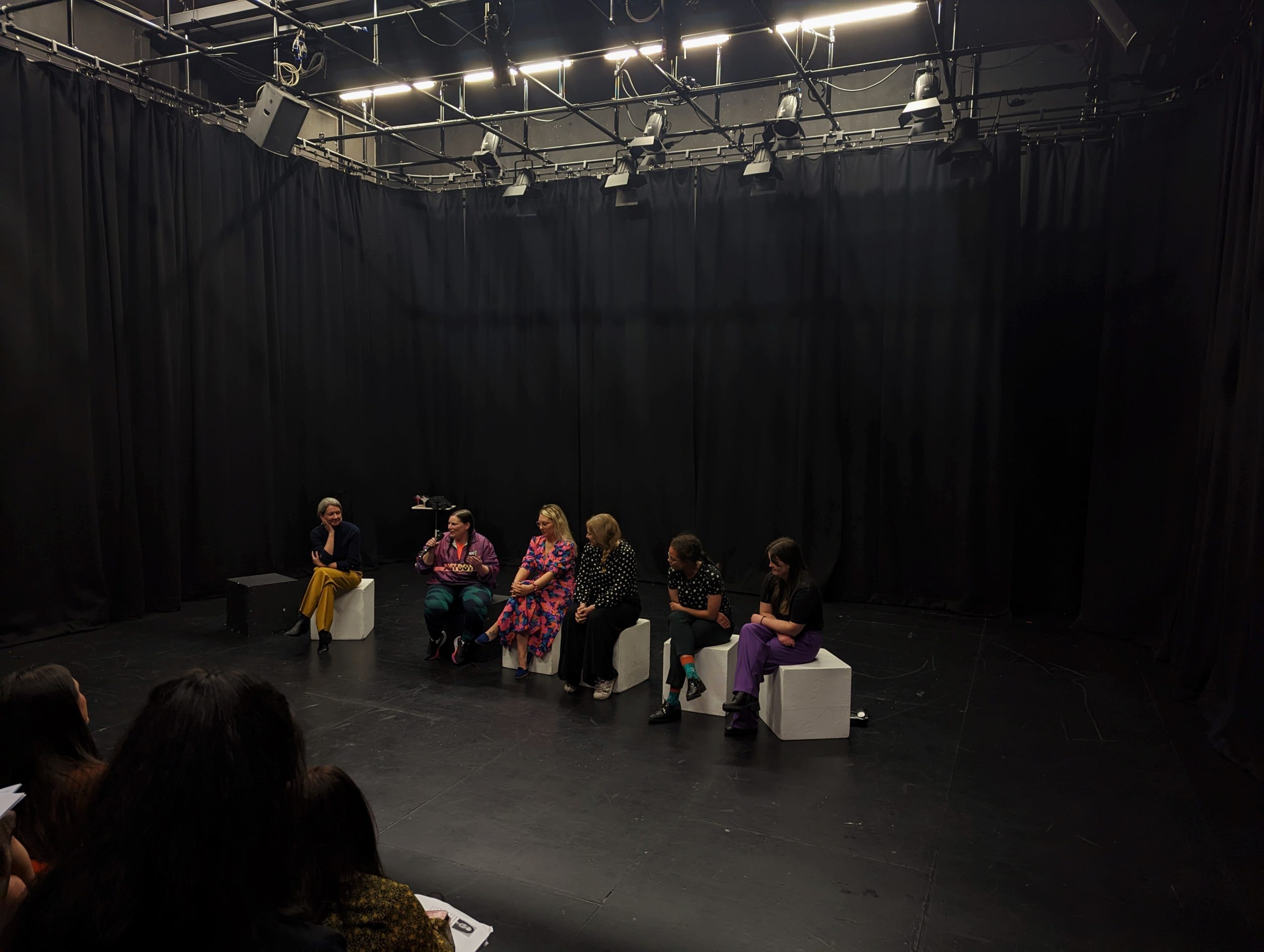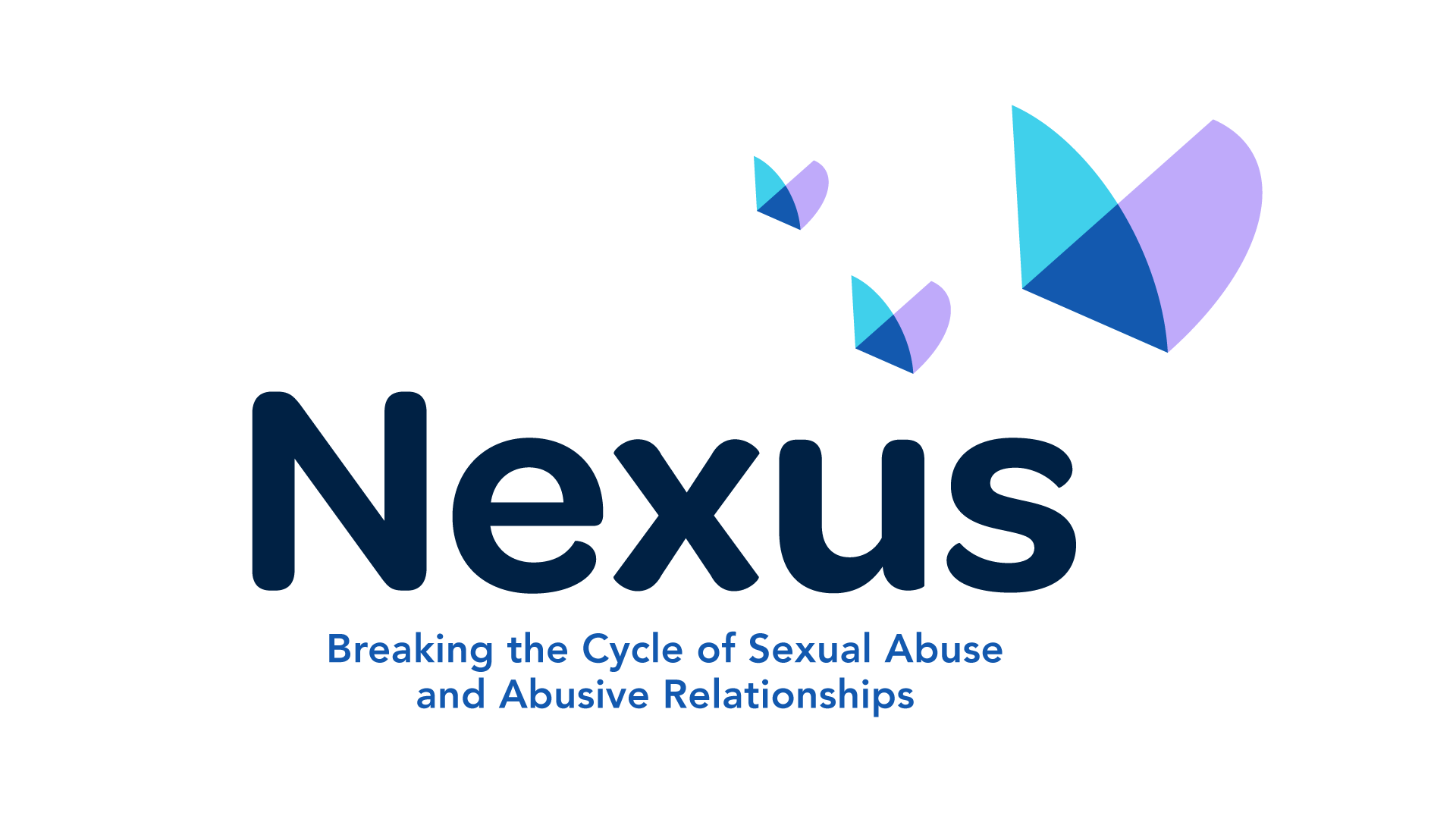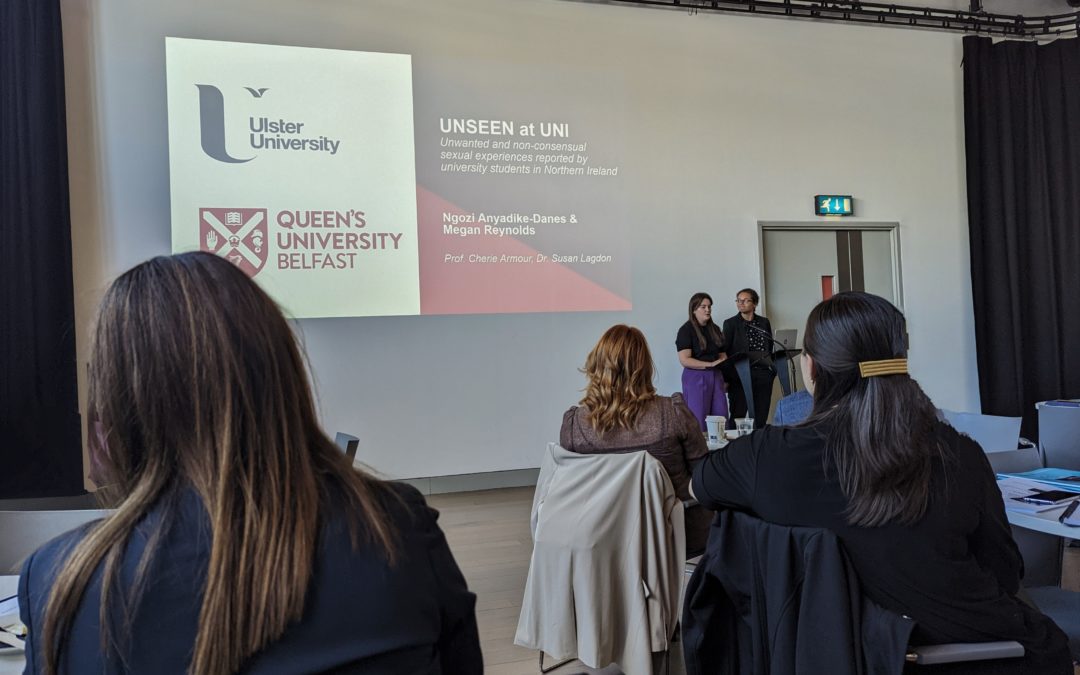Seen and Heard Blog
The ‘Seen and Heard’ Event held on September 28th brought together the public sector and the arts to reflect on a recent report by PhD candidates Ngozi Anyadike-Danes and Megan Reynolds on the prevalence of unwanted sexual experiences (USEs) reported by university students in Northern Ireland. A brief snapshot of the results of Anyadike-Danes and Reynolds research is stark:
Anyadike-Danes and Reynolds work highlights the need to broaden the network of early intervention stakeholders to include policy makers, educators, guardians and everyone who plays a key role in young people’s lives so that we can start breaking the cycle of harassment and sexual violence as soon as children begin to form relationships.
Dr Pádraig MacNeela from Active Consent Galway summed up this sentiment succinctly: Remind, Reinforce, and Extend. He told the audience during his segment that we need to implement a combination of a Positive and a Misconduct Approach that combines prevention and intervention, but also reaction and justice. Most importantly, Dr MacNeela said “We need to have proactive engagement, generate knowledge, and promote healthy relationships in our young people”.
The next speaker was Clarissa Humphreys, Durham University’s Sexual Misconduct Prevention and Response Manager. Her presentation emphasised the culture of misogyny and sexism that persists not only at universities but also in our approaches to ending sexual harassment and abuse. Most notably, Humphreys laid out four main points to creating a comprehensive institution-wide approach:
– It must address all forms of gender-based violence, from the physical to the institutional
– It must reach all students and staff, with particular attention to the variety of different backgrounds, upbringings, and identities
– It must include all aspects of university life, including study abroad, field and research work, internships, housing, and financial situations
– Finally, any approach must treat staff and students comparably.

Pictured above: a panel of 6 people sit after the play to discuss the importance of the arts in trauma recovery. Kat Woods, the playwright, is speaking about her motivations for the play.
After lunch, attendees had the opportunity to view some powerful artwork by feminist artist Emma Stewart, whose work illustrates patriarchal oppression on female expression and existence. Her portfolio includes pieces titled “It’s a Man’s World” and “boys will be boys, men will be masters” that capture the societal, institutional, and historical pressures on women to conform to a hierarchal system that views them as lesser. You can see some of Emma’s work on Instagram @emmastewart_art.
To end the day, attendees viewed Kat Wood’s play ‘Wasted’, a striking performance that hit hard at how we understand consent and provoked a deep conversation around drunken sex, communication, and how we can use the arts and theatre to engage with the public on these oftentimes daunting topics. As one audience member put it, “We don’t wake up one day with all of this knowledge”. Kat’s play brought us all together to discuss how creative mediums give a wider audience oftentimes the first opportunity they’ve had to have a conversation on these issues.
Overall, this event was a fantastic opportunity for cross-sector engagement on the serious issues facing young people today and how we can use art and other forms of expression to break the cycle of rape culture in Northern Ireland.





